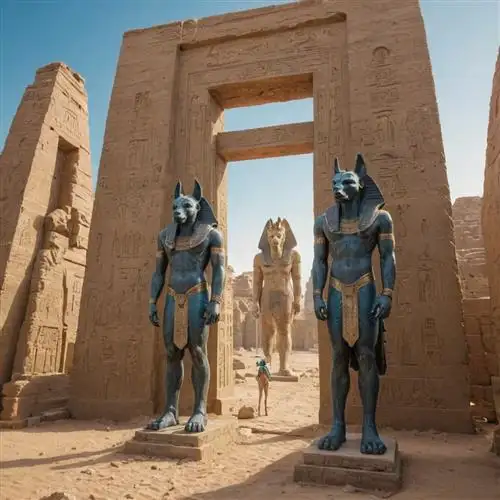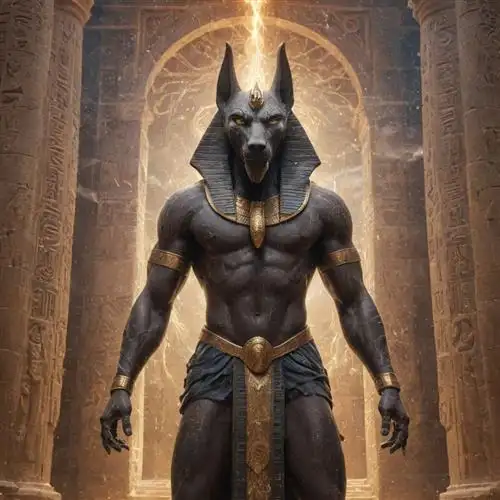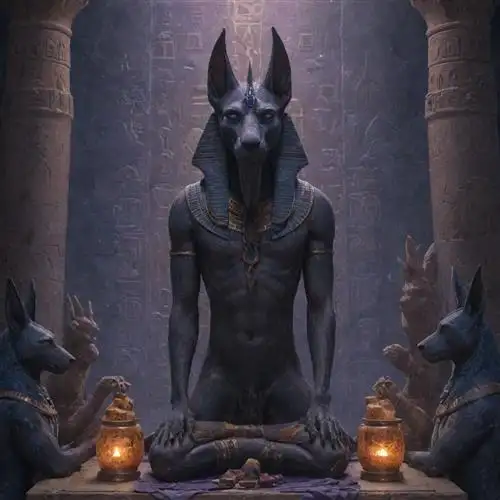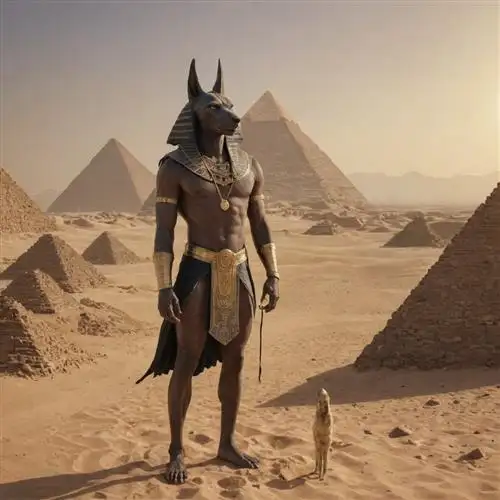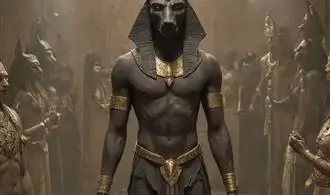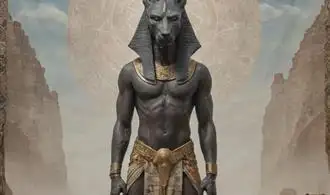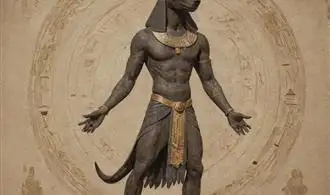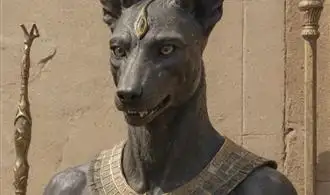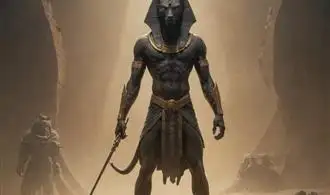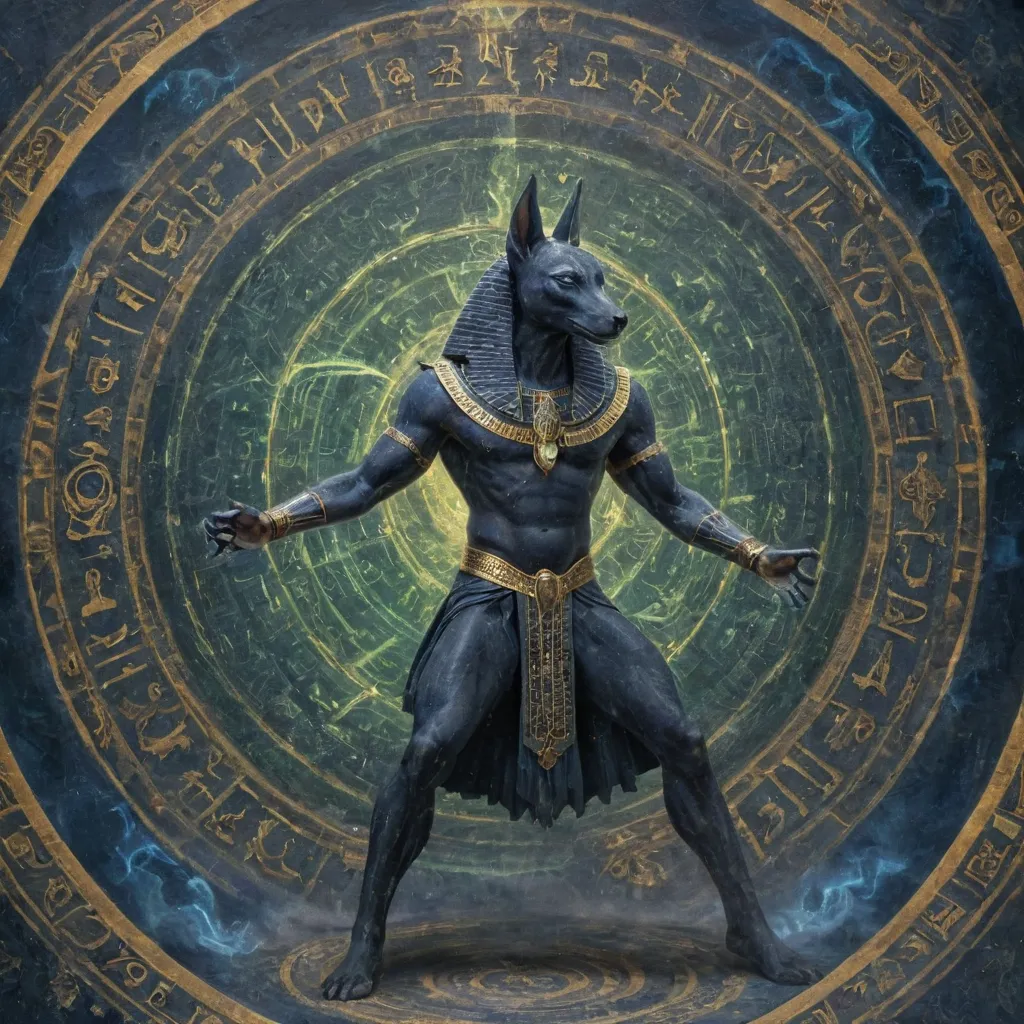
Understand the Origins of Anubis
Anubis, the jackal-headed deity, has been a prominent figure in ancient Egyptian mythology for millennia. As the god of the afterlife, mummification, and the protection of the dead, Anubis played a crucial role in the spiritual beliefs and practices of the ancient Egyptians. To truly understand the protective power of this enigmatic deity, it is essential to delve into the origins and significance of Anubis.
The origins of Anubis can be traced back to the early dynastic period of ancient Egypt, where he was initially worshipped as a local deity in the region of Cynopolis, located in the western Nile Delta. However, over time, Anubis's sphere of influence expanded, and he became one of the most important deities in the Egyptian pantheon.
According to ancient Egyptian mythology, Anubis was the son of the goddess Nephthys and either the god Set or the god Ra. His connection to the afterlife and mummification stemmed from his role as the guardian of the dead and the one who oversaw the embalming process. Anubis was believed to be responsible for guiding the deceased through the dangerous underworld, ensuring their safe passage to the afterlife.
One of the most significant aspects of Anubis's origins is his association with the jackal. The jackal-headed form of Anubis was not just a symbolic representation but also a reflection of the deity's connection to the natural world. Jackals were known to roam the deserts and graveyards, and their presence was often seen as an omen of death. By adopting the jackal-headed form, Anubis was able to establish a deep connection with the natural cycles of life and death, further solidifying his role as the protector of the deceased.
Moreover, Anubis was believed to be the inventor of the mummification process, which was essential for the preservation of the deceased's physical form and the journey to the afterlife. This connection to the mummification process further reinforced Anubis's role as a guardian and protector of the dead, ensuring their safe passage to the next life.
Discover the Protective Symbolism of Anubis
Anubis, the jackal-headed Egyptian deity, has long been revered for his powerful protective symbolism. As the god of the afterlife, mummification, and the dead, Anubis was believed to guide the souls of the deceased through the treacherous journey to the afterlife. This ancient Egyptian deity's protective influence extends far beyond the realm of the dead, offering a rich tapestry of symbolism that can empower and shield the living.
At the heart of Anubis' protective symbolism lies his role as the guardian of the necropolis, the sacred city of the dead. As the keeper of the dead, Anubis was responsible for the careful preparation and preservation of the deceased, ensuring their safe passage to the afterlife. This connection to the sacred rituals of death and rebirth imbues Anubis with a profound sense of protection, not only for the departed but for those who seek his guidance in their own lives.
Anubis' association with mummification and the embalming process further reinforces his protective powers. The intricate and meticulous rituals involved in preserving the body were believed to be under the watchful eye of Anubis, who ensured the successful transformation of the physical form into the spiritual realm. This symbolic connection to the process of death and rebirth has made Anubis a potent protector, guarding against the unknown and the unseen forces that may threaten the living.
Beyond the realm of the afterlife, Anubis' protective symbolism extends to the living, offering a shield against various threats and challenges. As the god of the necropolis, Anubis was believed to possess the power to ward off evil spirits, curses, and other malevolent forces that could harm the living. Invoking Anubis' protective energy was thought to provide a strong defense against physical, emotional, and spiritual dangers, making him a revered figure in ancient Egyptian society.
The iconography of Anubis further reinforces his protective symbolism. The jackal-headed figure, with its sharp, watchful gaze and powerful stance, conveys a sense of vigilance and unwavering guardianship. This powerful visual representation has made Anubis a potent symbol of protection, inspiring those who seek his divine guidance and blessings.
Harness the Funerary Rituals of Anubis
Anubis, the ancient Egyptian jackal-headed deity, was revered for his role as the protector of the dead and the guardian of funerary rituals. As an integral part of the Egyptian religious pantheon, the rituals and practices associated with Anubis hold a wealth of insights for those seeking to harness his protective power. In this article, we will delve into the profound significance of Anubis' funerary rituals and explore how you can incorporate them into your spiritual practice.
The funerary rituals of Anubis were meticulously designed to ensure the safe passage of the deceased into the afterlife. At the heart of these rituals was the mummification process, which Anubis himself was believed to oversee. The preparation of the body for the journey to the afterlife was a sacred and intricate affair, involving the removal of internal organs, the packing of the body with natron, and the careful wrapping of the body in linen. Each step was imbued with symbolic meaning, and Anubis was believed to be present, guiding the process and ensuring the protection of the soul.
Beyond the mummification ritual, Anubis was also central to the weighing of the heart ceremony, where the deceased's heart was weighed against the feather of Ma'at, the goddess of truth and justice. This pivotal moment determined the fate of the soul, and Anubis, as the guardian of this ritual, played a crucial role in ensuring the fairness of the judgment. By aligning your own heart and actions with the principles of Ma'at, you can invoke the protective power of Anubis and increase your chances of a favorable outcome in the afterlife.
To further harness the funerary rituals of Anubis, consider incorporating the following practices into your spiritual journey:
- Establish a personal altar or shrine dedicated to Anubis, adorned with symbols and imagery associated with the deity, such as the jackal or the ankh.
- Engage in contemplative practices that focus on the themes of death, transformation, and the afterlife, seeking Anubis' guidance and protection.
- Study the mummification process and the symbolic meaning behind its various stages, using this knowledge to inform your own spiritual practices and rituals.
- Perform cleansing and purification rituals, invoking Anubis' power to remove energetic blockages and negative influences.
- Incorporate the concept of the weighing of the heart into your personal reflections, examining your own actions and beliefs to ensure they are aligned with the principles of Ma'at.
Invoke the Guidance of Anubis in Daily Life
Anubis, the ancient Egyptian deity associated with the afterlife, is renowned for his protective and guiding powers. In times of uncertainty or challenge, invoking the presence of Anubis can provide a profound sense of security and direction. By incorporating his energy into your daily routine, you can unlock the transformative potential that lies within.
Start your day by acknowledging Anubis's watchful presence. Engage in a brief meditation, visualizing the jackal-headed god standing beside you, ready to offer his unwavering support. Allow his steady gaze to instill a deep sense of comfort and clarity as you navigate the day ahead.
Throughout the day, pause and reflect on Anubis's role as the guardian of the dead. Contemplate the interconnectedness of life and death, and how his guidance can help you approach each moment with a heightened sense of purpose and appreciation. When faced with difficult decisions or complex situations, ask for Anubis's wisdom to help you discern the right course of action.
Incorporate Anubis-inspired symbols and rituals into your daily life. Wear an Anubis-inspired amulet or pendant to feel his protective energy close to your heart. Burn incense associated with the god, such as myrrh or frankincense, to create a sacred space and invite his presence. Consider creating a small shrine or altar dedicated to Anubis, where you can offer prayers, light candles, and leave offerings.
Integrate Anubis' Qualities for Spiritual Growth
Anubis, the ancient Egyptian god of the dead, is renowned for his unwavering protective powers and profound connection to the afterlife. While his primary role was to guide the deceased through the process of mummification and ensure a safe passage to the afterworld, Anubis' attributes hold deep significance for those seeking spiritual growth and personal transformation.
To harness the transformative energy of Anubis, it is essential to cultivate a deep understanding of his multifaceted nature. Anubis is not only the guardian of the dead but also a powerful symbol of rebirth, transition, and the cyclical nature of existence. By aligning ourselves with his qualities, we can unlock invaluable insights and unlock new pathways for personal and spiritual evolution.
One of the key qualities of Anubis that can profoundly impact our spiritual journey is his unwavering vigilance and protection. Anubis is revered for his ability to safeguard the vulnerable and shield them from harm, both in the physical and metaphysical realms. By invoking his protective energy, we can create a sacred space within ourselves where we feel secure enough to confront our deepest fears and explore the depths of our psyche without fear of being overwhelmed.
Another vital aspect of Anubis' energy is his connection to the underworld and the transformative powers of death and rebirth. As the guardian of the dead, Anubis represents the essential cycle of life, death, and renewal. By embracing this cyclical nature, we can learn to let go of the old, release the limiting beliefs and patterns that no longer serve us, and open ourselves to the process of transformation and spiritual growth.
- Develop a deeper understanding of Anubis' mythological and symbolic significance through research and contemplation.
- Create a sacred space or altar dedicated to Anubis, incorporating symbols and elements that represent his protective and transformative powers.
- Practice meditation and visualization exercises that invite the energy of Anubis into your being, allowing his qualities to permeate your consciousness.
- Engage in rituals or ceremonies that honor Anubis and his role as a guide through the process of personal transformation and spiritual growth.
- Reflect on the areas of your life where you need Anubis' protective presence and guidance, and consciously invite his energy to support your journey.

